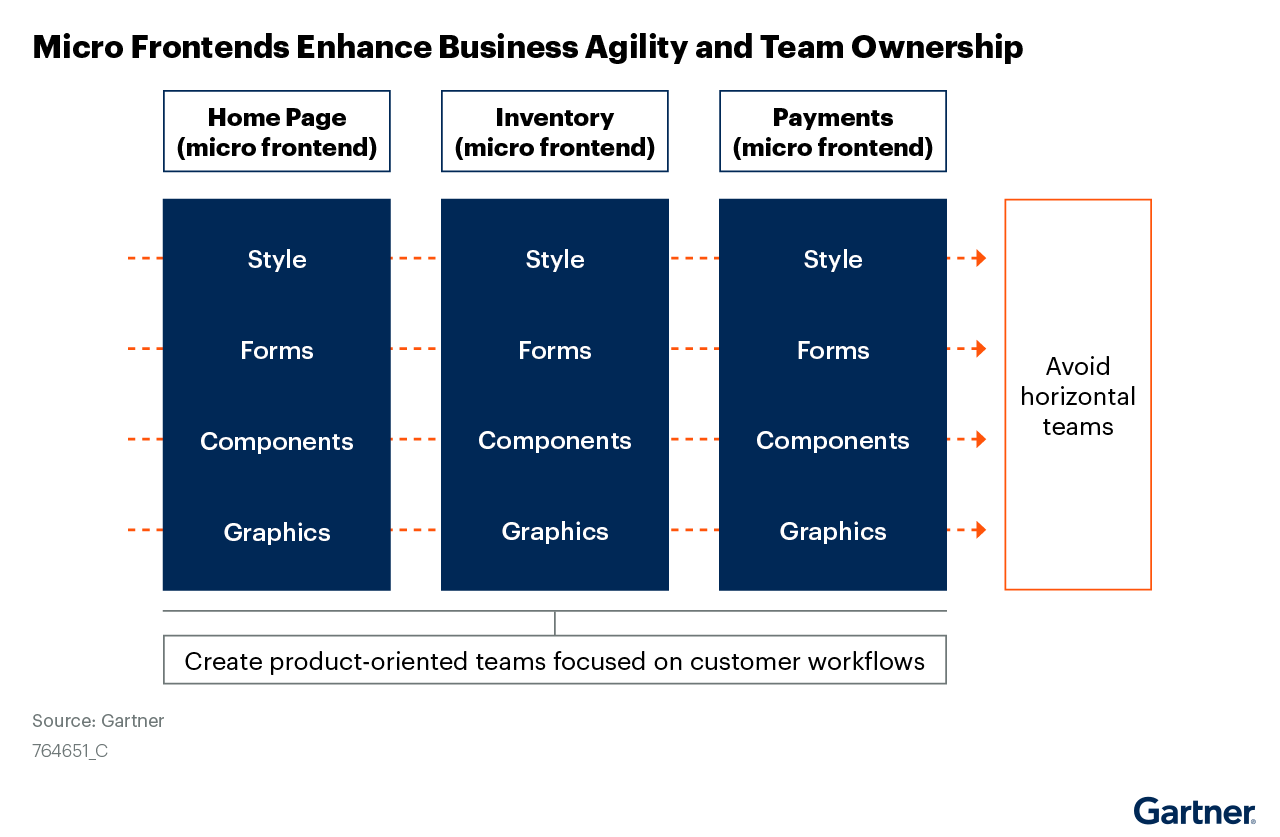In the 1990s we saw the dawn of a new era—one where computers were suddenly found in almost every household across the nation. Only 15-20 years later, the smartphone is introduced, changing the tech world as we know it once again. In just the last 10 years, we’ve seen over a 50% increase in the number of adults that own a smartphone—unleashing a whole new generation of hardware, software, and programming.
People now have access to the internet right at the tip of their fingers all day long. Where marketers had just started to get a handle on web development, along came the mobile phone and forced the industry to evolve once again.
While web development is still a growing field, we’ve seen mobile development expanding rapidly over the last few years. Both options have very similar qualities but have different uses. So, what are the key differences between web vs mobile development? Let’s dive in.
What Is Web Development?
Web development is the creation and maintenance of websites, including website design, programming, publishing, and managing databases. These websites are developed for various tasks, such as internet apps or social sites. The process for web development generally includes programming, content writing, information collection, and coding. The main sources for web development are HTML, Javascript, and CSS.
There are two parts to web development: front end and back end. On the front end is what you want your visitors to see and interact with on your website. The back end is your website’s server and is invisible to website visitors. It’s used to manage and store information. The features of web applications are generally quite simple and can be built rather quickly, especially if one is using a template.

What Is Mobile Development?
Mobile development, also called app development, is the creation of mobile apps developed for mobile devices. These apps are optimized to take advantage of the unique features of specific devices such as phones and tablets. An essential part of the creation of mobile apps is the user interface (UI). A mobile UI is programmed to be extremely user-friendly, simple, and efficient.
Like web apps, mobile apps must have a front end properly supported by their back end. The mobile back end focuses on authentication and security, rerouting data, finding proper authorizations, offline capabilities, and more. Mobile app developers also need to consider the wide range of screen sizes and hardware, as well as configurations between brands and models. Developing a platform-specific app is generally pricey since they have to be tweaked according to which app store they plan to be downloaded from.
What About Mobile Websites?
Like a mobile application, a mobile website is optimized specifically for mobile devices in terms of screen size, ease of use, and configuration. This means that generally, websites that have been deployed for mobile use may have smaller text, fewer ads, and less empty space. Mobile websites also tend to have faster response time as they are configured for touch screen devices.
 Mobile websites are a great middle ground for those who want to expand their horizons from regular browsers to the mobile community but don’t want to commit to an app just yet. By developing a website that has both web and mobile capabilities, you bring in significantly more traffic.
Mobile websites are a great middle ground for those who want to expand their horizons from regular browsers to the mobile community but don’t want to commit to an app just yet. By developing a website that has both web and mobile capabilities, you bring in significantly more traffic.
In 2021, an estimated 54% of all web traffic was from mobile devices (not including tablets). This number has slowly but steadily been climbing over the last few years, with the average American spending approximately three hours a day on their phone (not including work-related reasons).
Web vs. Mobile Development: Pros & Cons
These are two types of digital interfaces, very similar but also very different, and both extremely popular in today’s world. While web development has been around longer, it’s not by much in the long run, and mobile development is quickly catching up. Of course, there’s always that compromise option– mobile websites. There are benefits and drawbacks to each option, and we’ll explore a few below.
Web Development Benefits
- Websites/web apps on the internet can be accessed on any platform, naturally gaining much more exposure. The cross-platform configuration allows users to log in on any browser from any computer.
- Allows for instant access. There’s no need to download or install the app onto your computer or wait for app store approval.
- Automatically updates themselves without initiation from the user. Often done in times when the user is least likely to be trying to access it.
- Easier to find in search engines, often popping up based on search engine optimization (SEO) and keywords in the search bar, gaining more exposure for your website.
- Generally less expensive, without the hassle of customizing different options for different platforms.
Web Development Drawbacks
- Slower, less advanced features than that in mobile apps and even mobile websites.
- Without the internet, you have no access, so you are fully reliant on having a Wi-Fi or data connection.
- Because they don’t have to be approved by the app store, the quality can sometimes be questionable, if not underwhelming.
- Performance is dependent on your browser and internet speed.
Mobile Apps Benefits
 Increased performance and speed due to being optimized for their specific device.
Increased performance and speed due to being optimized for their specific device.- Functionality and efficiency increased thanks to direct system resources.
- Allows for direct, effective communication between you and your users with push notifications along with chatbox options.
- Access to loyalty programs or accounts right at your fingers, allowing customers to ditch the outdated loyalty cards or phone numbers.
- Day-to-day conveniences such as payment options, note-taking, and immediate access to accounts and business users frequent daily.
- Access to phone features, camera, calculator, and more (think: click-to-call).
- Offline capabilities.
Mobile Apps Drawbacks
- Generally more expensive due to having to customize options for each platform.
- Apps need frequent maintenance and updates.
- Must wait for approval from the app stores, which can be a time-consuming process.
- Users must download or install it to be able to use it.
- Doesn’t often come up in search results.
Mobile Website Benefits
- Links are easily shared via Messenger, text, Snapchat, or other IM options.
- The average time spent on-site is longer than on browser websites.
- Increased loading speed for websites optimized for touch screen devices.
- Tap-to-call and other phone features are readily available.
- More exposure in search engines by optimizing SEO and keywords.
- Cross-platform experiences make for a smooth transition for any user.
- Much more cost-effective than mobile app development; no approval is needed from app stores.
Mobile Website Drawbacks
- No access to the website without the internet.
- Slower load times and generally poorer user experience than apps or regular browsers.
- Doesn’t show up in app stores.
- Less privacy than that of a secure mobile app.
Web vs. Mobile Development: Which Is Better?
There is no right or wrong answer when choosing between web or mobile development. There are pros and cons to each, and in a perfect world, the answer would simply be: Both. However, there are certain situations where having one or the other may be a good option for you, so here are some key examples.
When Is Web Development Better?
 If you’re just getting started, looking to gain traffic, and establish brand identity.
If you’re just getting started, looking to gain traffic, and establish brand identity.- Looking to drive sales and build connections with customers of all ages.
- If you’re content-oriented and looking to have blogs, articles, or other resources available for your users.
- Looking to compete with big-brand companies in your area.
- If you’re more comfortable using basic coding and simple web languages.
- You want the versatility that comes with not being tied to one platform.
When Is Mobile Development Better?
- If you’re looking for interactive uses, such as games, puzzles, and other forms of entertainment.
- You want your users to be able to customize their experience and use it regularly.
- You want your users to be able to have offline access.
- You want to be able to communicate directly with your users via push notifications.
- You want to be able to analyze data and track user ages, locations, and other demographics for a more personalized experience.
- You are comfortable with more complex coding and swift language.
When Are Mobile Websites Better?
- If you’re looking for easy share-ability between mobile devices.
- You’re looking for a cost-effective way to gain mobile access.
- You want your brand to stand out and become truly recognizable.
- You want your page to be easily found online via search engines.
- You want a longer lifespan for your website than the average app has.
- You want to test the waters of mobile traffic before deciding to create your app.
- You want faster running speed and download times (no downloading necessary).
Learn More From The Web Application Development Specialists
Making the best decisions for your business or brand is important to you, and you want to be sure you have all of the information before you do so. Unfortunately, there is no one-answer-fits-all option, so you have to weigh the pros and cons to do what is best for you.
If the above information doesn’t answer all your questions about web vs. mobile development, visit Orases Online for more useful information, or call 301-756-5527 to speak to an expert. You can also click here to get a consultation, and someone will be in touch soon.






